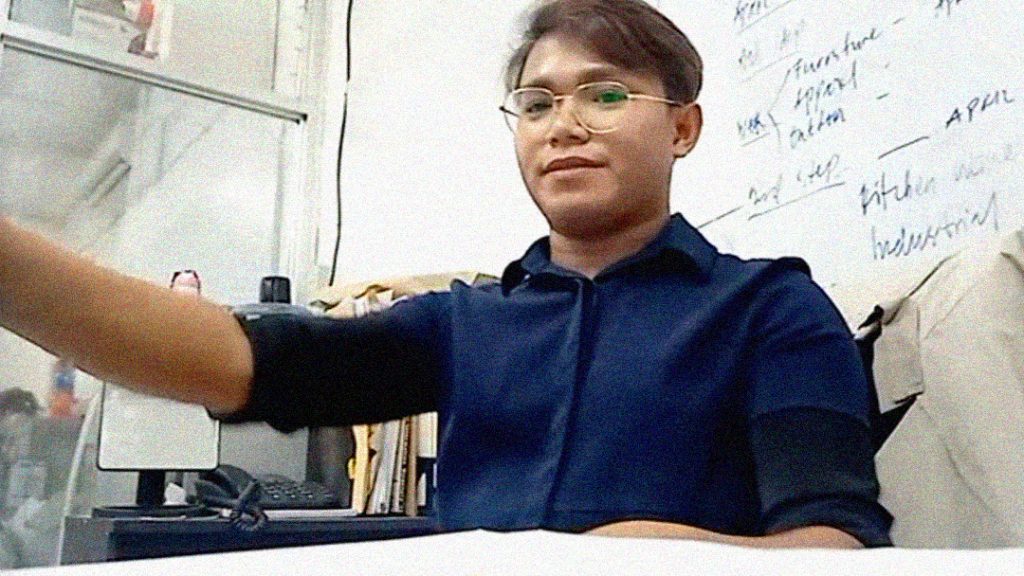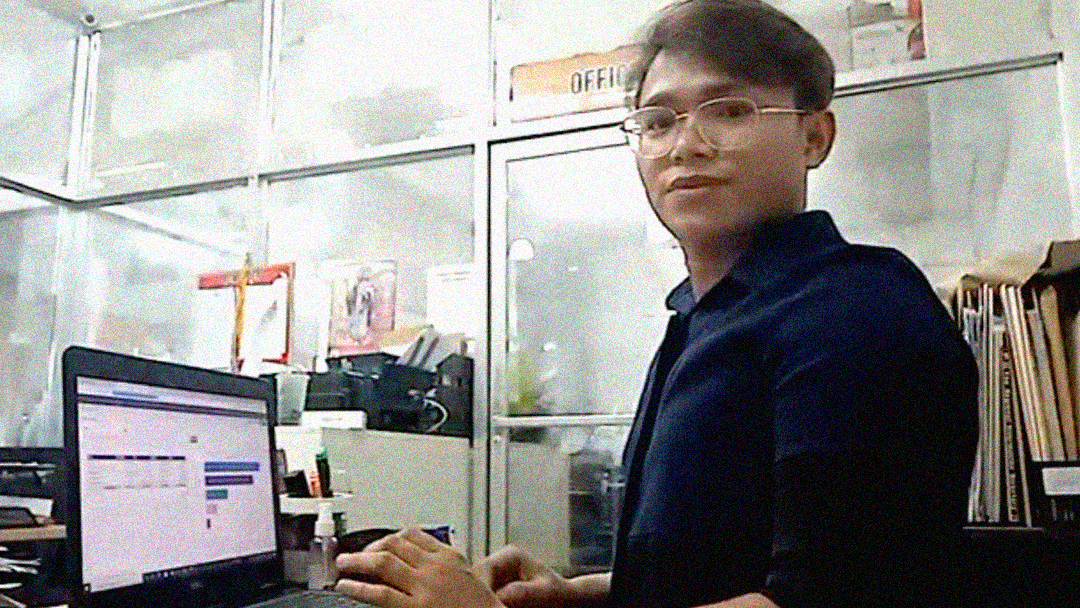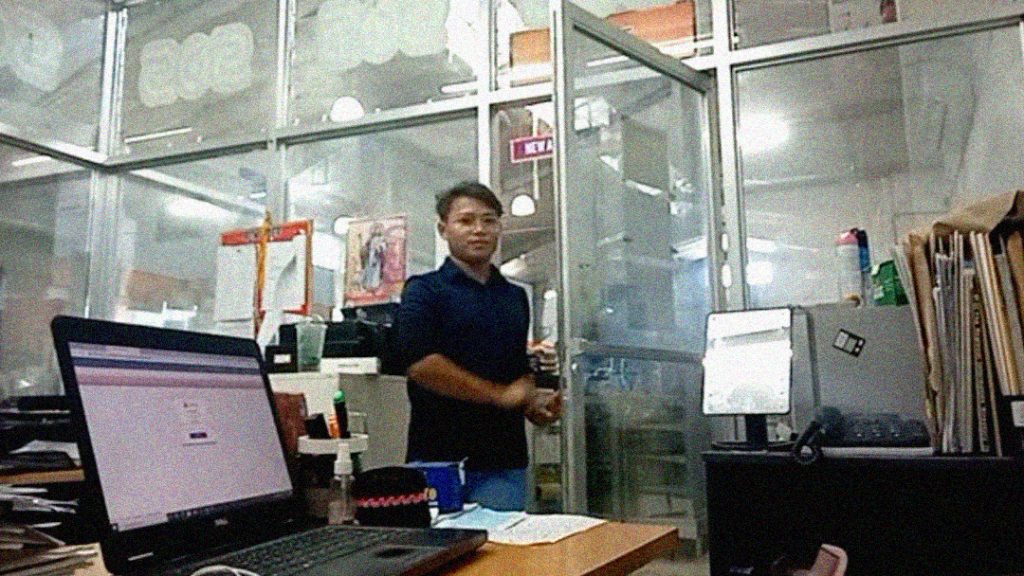This is part of #KaraniwangLGBTQIA, which Outrage Magazine officially launched on July 26, 2015 to offer vignettes of LGBT people/living, particularly in the Philippines, to give so-called “everyday people” – in this case, the common LGBTQIA people – that chance to share their stories.
As Outrage Magazine editor Michael David C. Tan says: “All our stories are valid – not just the stories of the ‘big shots’. And it’s high time we start telling all our stories.”
Jomar Zabala Cortez – 28 years old from Catarman, Northern Samar – realized he is not stereotypically masculine, that he is quite feminine when he was in elementary school.
In fact, thinking back, “even at home, I was more comfortable being with women than with men,” he said. “I felt I belonged with women.”
So the third of five kids admitted that, yes, he’s part of the LGBTQIA community.
FOCUS ON FAMILY
“My father had a (bad) reaction; he really wanted for me to be more manly,” Jomar said.
But he thinks his Dad had his reasons.
“Before he died, he told me why he didn’t want to have a gay family member. He didn’t want us to be discriminated because society wasn’t open to LGBTQIA people yet at that time. He saw gay people who were abused, who were treated as the butt of jokes… and he didn’t want to see me being ridiculed. So he pushed me to be manly; that I shouldn’t be gay.”
Jomar added that, thankfully, “he wasn’t so strict that he hit me, hanged me… nothing like that. I never experienced those.”
His Mom, though, was always supportive.
“She never questioned my identity. I never heard her ask, ‘Why are you gay?’. Instead, she accepted me fully. She even seemed happier (I’m gay),” Jomar said.
For Jomar, parents need to learn to accept their LGBTQIA children.
“It’s hurtful when other people accept you but your family don’t. For me for example, I don’t care if others don’t accept me. As long as my family accepts me. So that’s the advice I can give to parents: To be a source of inspiration for your LGBTQIA child. Nothing more. It is important that you acknowledge, you accept your own family members,” he said.
Jomar didn’t have problems with his siblings. In fact, “I actually have LGBTQIA siblings. The two siblings after me – one is a lesbian, the other is also gay.”

CONFRONTING HATRED
In elementary school, there were times when people yelled ‘Faggot! Faggot!’ to him while just walking on the hallway.
“They said lots of bad things. In those days, people – like my classmates – were close-minded about SOGIESC,” he said. “You just tell them you don’t care. But many times, it’s better to just stay quiet. As long as you don’t hurt them, too. You just ignore them. Because if you don’t, you’d worsen things.”
Jomar had a better experience in college.
Studying at Colegio de San Lorenzo Ruiz de Manila in Catarman, Northern Samar, where he completed Bachelor of Elementary Education, “that’s where I was fully accepted. That’s where I was able to show what I can do.”
He was elected as student council P.I.O. in 3rd year college. And as a graduating student in 2015-2016, he was elected president of the student council (for the whole school).
It is, perhaps, worth noting that Jomar was also already working since he was in his first year in high school. By doing more than was expected of him, he thinks LGBTQIA people can learn from this – i.e. for them to pursue their education no matter what, particularly since “I know a lot of LGBTQIA people who do not finish schooling.”
He passed the board exam in 2019.
For Jomar, “there’s pressure when you’re LGBTQIA. People expect you to be talented, to be good at what you do, to be independent. Even while schooling, you’re expected to be an achiever. If you’re not good academically, at least be talented. That’s how they see us. You should be able to prove yourself all the time.”
He added, though, that this shouldn’t be the case.
“LGBTQIA people are ‘normal’ humans. There are areas where we’re good at, and where we’re not good at. So treatment should be fair. How they treat themselves should be how they treat LGBTQIA people,” he said.
Things have been changing… somehow.
“There was a time when I tried to be more masculine. But that didn’t work out; I’m not a man’s man,” Jomar said. “But so far, my friends now, they’re more open about my SOGIESC. In fact I have heterosexual friends now because they’re more open. This is more accepted now compared before.”

LOVE VERSUS DUTY
“I am not open to having a relationship for now,” Jomar said, adding that “I am the breadwinner of the family.”
Specifically, when his Mom died in 2016, he was tasked to send his two siblings to college; they’ve since finished schooling.
With finding love as an LGBTQIA person in the Visayas, he noted that “there are some people who do not enter into relationships with LGBTQIA people because of money.”
This is in reference to more traditional arrangements involving LGBTQIA people who “pay” to be in relationships.
“At least for me, with transactional relationships, both sides are at fault. Some LGBTQIA people show that there’s money involved in relationships,” Jomar said. “So others are implicated, even if (transactional sex) isn’t their intent.”
WORKING IN TACLOBAN
Jomar now works as a sales manager at SOS Tacloban, even if he used to teach elementary education.
“When I applied for this post, I was hesitant at first. I didn’t expect for them to hire an LGBTQIA person as sales manager,” he said.
For him, “there’s pressure because your employer expects for you to have talent. And that you can do a lot. So from time to time, there’s pressure on how to increase sales.”
Sometimes, one may also encounter clients who are against LGBTQIA people.
“They can be rude to you,” Jomar said. “But that’s okay; you push through. That’s part of you selling. But my message to them is (for them to know) we didn’t desire for this to happen. This is (just) who we are. So just learn acceptance. As long as we’re not a disturbance to you. Hopefully they’d open their minds more for LGBTQIA people.”

RISE UP LGBTQIA
For Jomar, if there’s an LGBTQIA organization in Tacloban, this can help a lot.
“This is also to protect members of the LGBTQIA community, and raise the voices of those who are bullied,” he said.
This is because there are still various issues faced by LGBTQIA people in his locaity.
For instance, there’s bullying. “It’s still there,” Jomar said.
He also knows people who have difficulty finding employment because they’re part of the LGBTQIA community.
And then – Jomar added – there’s also the need to raise awareness about HIV because the infection rate in Tacloban is high. To date, there are 30 new HIV infections reported every day in the Philippines.
For younger LGBTQIA people, knowing that education is important is a must for Jomar.
“Some people belittle LGBTQIA people because they go astray. Education remains important. We may be gay, but education will be our number one weapon to find good employment,” he said.
Also, “be a good example to our community. So people don’t just see gay people as like this or that… but as possible inspiration,” Jomar ended.
































































